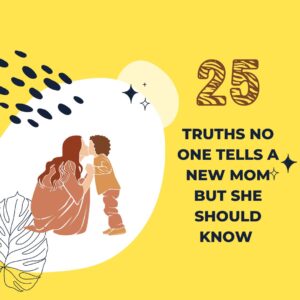Little bit of nostalgia, lots of awe and oodles of...
Read MoreHow To Heal From Emotional Abuse


What is Emotional Abuse?
Abuse is a common phenomenon. All abuse is about power and control. It can occur in any human relationship between two individuals who are close in a physical realm – spouses, siblings, parent and child, other family members, boss and reportee or with a co-worker.
Emotional abuse is dominating another person through emotions by manipulating, intimidating and isolating a victim so as to make them feel fear, less capable, induct self-blame and totally lose their own identity and self-worth. A lot of anguish is developed when you are being isolated, put down or controlled by someone you love, work with, or share any kind of personal relationship with.
Why Emotional Abuse is Unhealthy?
Abuse is unhealthy and with time it completely diminishes the self-esteem of an individual making him/ her feel completely worthless and contemplating self- harm. The consequences are so immense that the damage can stay with the victim/survivor for years even if they are physically separated from the abuser.
While physical abuse i.e. afflicting harm physically by beating or damaging a person externally is apparent, emotional abuse is a silent killer in many cases and is a precursor to physical violence.
Many people fear confrontations and thereby allow abuse to continue. People with characteristics of being martyrs, caretakers, or pleasers are usually the ones who face this. While there are no physical scars, the hidden or the unseen ones inflict and bring upon extreme pain to the person living through it.
Risk Factors for Being an Abuser
- Anger and Hostility Issues
- Jealousy
- Fear of abandonment
- Unrealistic Expectations
- Need to have everything under their control
- Risk Taking Personality
- Childhood involving emotional, physical or sexual abuse
- Tendency to blame others for your problems
- Emotional Volatility
- Selfishness and Narcissism
- Own set of rules to befit their lifestyle or desires


Risk Factors for Being a Victim
- Low Self Esteem
- Need for constant Validation
- Co Dependence
- Intense Need for Affection
- Inability to set and enforce interpersonal boundaries
- Tendency to feel responsible for others
- Tendency to take self-blame for others wrong doings
- Belief that you don’t deserve to be treated well
Impact of Emotional Abuse
Victims of emotional abuse have a hard time going through their normal routines and eventually go through nervous breakdown. While the exact side effects may vary from person to person but certain impacts can include losing the confidence to participate in both social and professional activities, thinking too low of oneself and thereby not taking any care. Along with anxiety and constant sadness, one could experience sleep disturbances, obsessive thoughts, muscle tensions, gastrointestinal upset and in worse cases people can go to being totally numb, completely indifferent to life – simply ceasing to feel anything at all.
Healing from Emotional Abuse
Everyone has a breaking point when it comes to dealing with emotional abuse. While some people seem to accept the situation and live in the misery, some others prefer to take action and end the relationship with the abuser once and for all.
- Speak to a Professional – When it comes to healing, it sometimes is a long, arduous journey but nonetheless something that’ll eventually benefit you. Seeking a professional to guide you will help as he/she strategizes your path to change. Using different tools and with a plan to act on, you’ll be able to recover from the wounds and move forward.
- Rebuilding Yourself – it’s totally normal that you have lost your sense of self or lack a direction or purpose as a result of abuse but remember you can reinvent yourself and go back to being a happy, jolly and productive individual. Redraw your boundaries and know whom you are going to let in depending on how that person makes you feel. Keep yourself at the center and not anybody else when you are defining whom to let in. Take back your story and understand your true self better loving your strengths and embracing your imperfections.
- Pick your hobbies again – Investing in things you love doing be it monetary investments or in terms of time and effort, go back to all the activities that you truly enjoy doing, those interests in which you lose sense of time and it keeps you completely engaged. Feel free to share your accomplishments while doing them with your friends/ family, with people of similar interests or with absolutely nobody at all while you keep journaling your feelings.
- Make your Mental Health a priority – Looking after your self is the best choice before you can look after anybody else who is dependent on you in any manner. There are different ways to build your inner strength right from doing regular physical exercises to including other self-care routines in your daily life.
As a victim of abuse, give yourself plenty of time to understand what happened and recount to yourself what you went through. Making a note of it will help you keep away from such people or situations in the future. Completely avoid contact with the abuser on all fronts and also remove any triggers that remind you of them. If it’s impossible to cut off ties entirely, limit your interactions to the bare minimum.
Every person’s healing journey is different but just remember that you can take back the power that you gave away and lead a fulfilling life as you take your life’s reins in your hands.
Please share my post
My recent posts
The Yellow Tumbler
A short fictional story “The woods,” she said, looking at...
Read More25 Things No One Tells a New Mom But She Should Absolutely Know
Blog Conversations Life Musings Parenting Reviews Wellness About Me X...
Read MoreDo You Have A Happy Corner In Your Home?
Blog Conversations Life Musings Parenting Reviews Wellness About Me X...
Read MoreUseful Links
Subscribe Now
Don’t miss our future updates! Get Subscribed Today!





